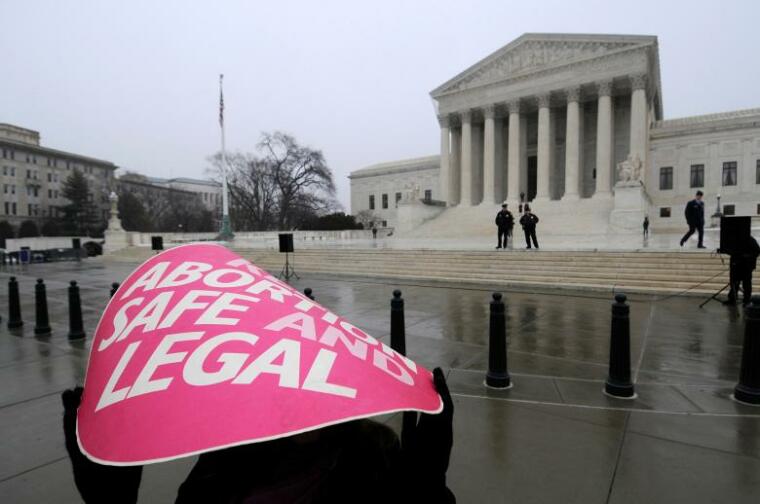Missouri judge upholds law requiring 72-hour waiting period before abortion

A Jackson County judge has denied a request to block a Missouri law that required abortionists to meet with their patients three days prior to the procedure.
The American Civil Liberties Union (ACLU) and two Planned Parenthood affiliates in Missouri have sued to challenge the law, claiming it imposed an undue burden on women seeking an abortion since the same abortion physician may not be able to see them three days after a consultation.
On Monday, Judge S. Margene Burnett ruled that the law did not place an undue burden on women seeking an abortion, and stated that the requirement was "at best a moderate modification of the informed consent restraints already in place."
The law, SB5, took effect this summer after Gov. Eric Greitens called for a special legislative session, according to KCUR.
A separate law already had a requirement for pregnant women to wait for 72-hours before obtaining an abortion. However, the informed consent scheme only required women to obtain counsel from "qualified professionals," which could include psychologists, social workers or physician assistants.
Under the new law, the doctor who would perform the abortion must also be the one who should provide the information about the procedure's medical risks.
Burnett had denied Planned Parenthood's request for a temporary restraining order against SB5, and she also dismissed the organization's argument that the law would especially burden patients because there are so few abortion providers in the state.
The judge contended that the scarcity of abortion physicians was not the state's doing and that the law "would not place a substantial obstacle in a woman's decision to obtain an abortion."
Missouri Attorney General Josh Hawley, who was named in the suit, said that he was pleased by Burnett's ruling.
"SB5 enacts sensible regulations that protect the health of women in Missouri and we will continue to vigorously defend these," he said.
Bonyen Lee Gilmore, the spokesman for Planned Parenthood Great Plains, expressed concern that abortion access in the state is "being stripped away one seemingly 'moderate' restriction at a time."
"When you put those all together, and context is everything in this world, you end in a place where women can't access abortion," she said.
Aaron Samulcek, the interim president of Planned Parenthood Great Plains, said that his organization will continue to fight what he deems as a medically unnecessary requirement.
"The harsh reality of today's court ruling is that this law will force some women to wait weeks for an abortion, travel hundreds of miles, or lose access altogether," he stated.
 Christians don't have to affirm transgenderism, but they can’t express that view at work: tribunal
Christians don't have to affirm transgenderism, but they can’t express that view at work: tribunal Archaeology discovery: Medieval Christian prayer beads found on Holy Island
Archaeology discovery: Medieval Christian prayer beads found on Holy Island Presbyterian Church in America votes to leave National Association of Evangelicals
Presbyterian Church in America votes to leave National Association of Evangelicals Over 50 killed in 'vile and satanic' attack at Nigerian church on Pentecost Sunday
Over 50 killed in 'vile and satanic' attack at Nigerian church on Pentecost Sunday Ukrainian Orthodox Church severs ties with Moscow over Patriarch Kirill's support for Putin's war
Ukrainian Orthodox Church severs ties with Moscow over Patriarch Kirill's support for Putin's war Islamic State kills 20 Nigerian Christians as revenge for US airstrike
Islamic State kills 20 Nigerian Christians as revenge for US airstrike Man who served 33 years in prison for murder leads inmates to Christ
Man who served 33 years in prison for murder leads inmates to Christ


 Nigerian student beaten to death, body burned over ‘blasphemous’ WhatsApp message
Nigerian student beaten to death, body burned over ‘blasphemous’ WhatsApp message 'A new low': World reacts after Hong Kong arrests 90-year-old Cardinal Joseph Zen
'A new low': World reacts after Hong Kong arrests 90-year-old Cardinal Joseph Zen Iran sentences Christian man to 10 years in prison for hosting house church worship gathering
Iran sentences Christian man to 10 years in prison for hosting house church worship gathering French Guyana: Pastor shot dead, church set on fire after meeting delegation of Evangelicals
French Guyana: Pastor shot dead, church set on fire after meeting delegation of Evangelicals ‘Talking Jesus’ report finds only 6% of UK adults identify as practicing Christians
‘Talking Jesus’ report finds only 6% of UK adults identify as practicing Christians Mission Eurasia ministry center blown up in Ukraine, hundreds of Bibles destroyed: 'God will provide'
Mission Eurasia ministry center blown up in Ukraine, hundreds of Bibles destroyed: 'God will provide' Church holds service for first time after ISIS desecrated it 8 years ago
Church holds service for first time after ISIS desecrated it 8 years ago Burger King apologizes for 'offensive campaign' using Jesus' words at the Last Supper
Burger King apologizes for 'offensive campaign' using Jesus' words at the Last Supper Uganda: Muslims abduct teacher, burn him inside mosque for praying in Christ’s name
Uganda: Muslims abduct teacher, burn him inside mosque for praying in Christ’s name